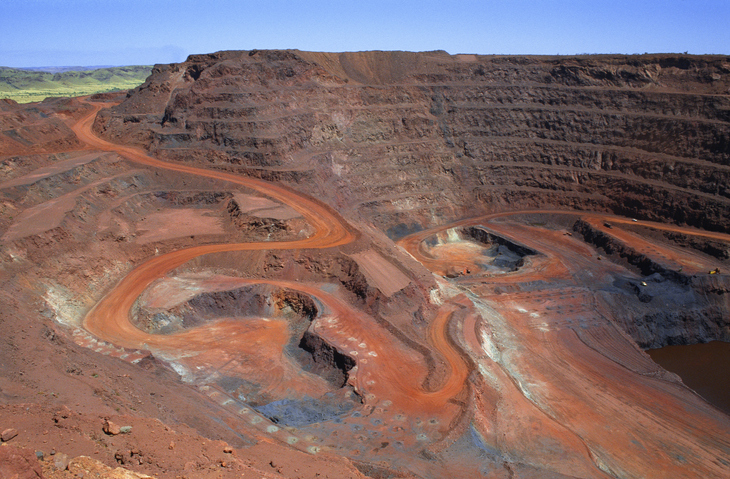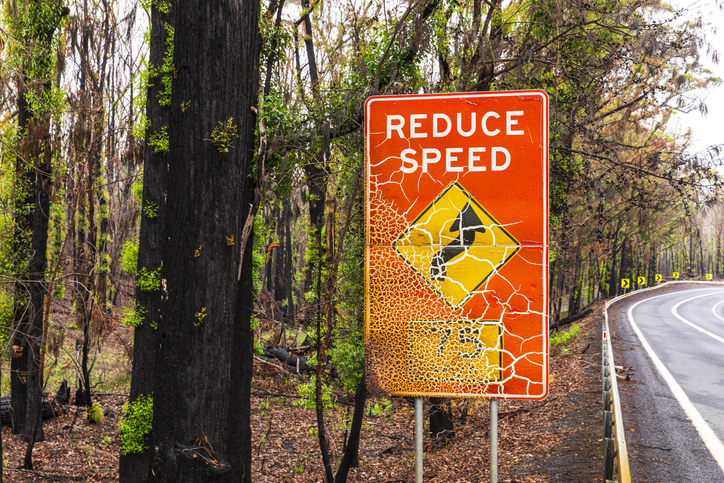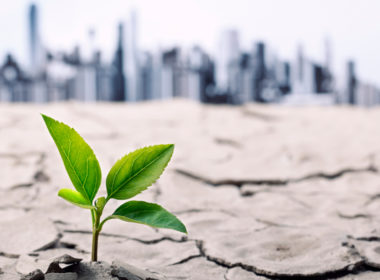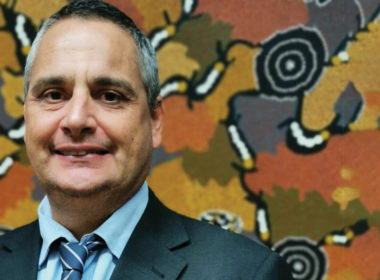Extreme weather is creating new challenges for Australian businesses. Will the legal profession need to prioritise climate-conscious lawyering?
Climate change is somewhat ironically known as an area of “hot law”. Through the courts, in particular, it’s evolving at a phenomenal pace as investors and members of the public demand better environmental protections.
On 8 July, high schooler Anjali Sharma and seven other students successfully sued the Federal Minister for the Environment in the Federal Court in an unprecedented climate change case, with the assistance of their litigation representative Sister Brigid Arthur. Justice Mordy Bromberg held the minister has a duty of care to avoid causing harm to persons under the age of 18 under existing environmental protection legislation.
The decision came after the group unsuccessfully applied for an injunction in May to restrain the minister from approving a controversial coal mine near Gunnedah, in northern “This is a landmark decision,” 17-year-old applicant Ava Princi said in a statement. “This is the first time a court of law, anywhere in the world, has recognised that a government minister has a duty of care to protect young people from the catastrophic harms of climate change.”
The world is undoubtedly watching. The class action received tremendous support from around the globe, with almost two thousand messages from people in 39 countries. Princi says the future of all young people depends on Australia, and other countries, stepping away from fossil fuels and taking decisive action on climate change. Although successful in principle, she warned, “this is not over”. Federal Environment Minister Sussan Ley has announced she will appeal the decision.
Leading the charge
University student Katta O’Donnell, 24, filed a class action in the Federal Court in July, alleging that climate change would have a material impact on Australian sovereign bonds. As one of the investors who have collectively loaned the Commonwealth an estimated $800 billion, O’Donnell says it breached its duty of disclosure by failing to disclose climate change risks. The respondents have filed an application to strike out parts of the pleadings, which was heard on 28 July.
And back in 2018, 23-year-old Mark McVeigh tackled Australia’s $3 trillion superannuation industry in what the media hailed a “David and Goliath battle”. He brought proceedings against Rest Super, a retirement fund with almost two million members and an estimated value of $57 billion, claiming that its failure to properly consider the risks of climate change breached the duty of care it owed.
Rest Super settled at the 11th hour, in November 2020. In a statement, the fund acknowledged that climate change could “lead to catastrophic economic and social consequences” and that it presented a material risk to the superannuation industry. It also announced an initiative to achieve a net-zero carbon footprint by 2050 and improve measuring, monitoring, and reporting on climate-related progress.
Equity Generation, a firm that specialises in Australian climate change law, represented the claimants in all three matters. Principal David Barnden says their passion is remarkable. “When I was their age, I was nowhere near as aware of these kinds of things. It’s a privilege to work with them, they’re motivated and highly intelligent and very aware of the nuances of climate change,” he tells LSJ.
“You have mixed feelings in court though. On one hand is the excitement and satisfaction of creating an opportunity to represent young people and change the world for the better. That’s mixed with hearing all the evidence that experts present on the current and future harms of climate change and that’s really quite disturbing. They give you a view that it’s going to be difficult to maintain temperatures.”
“When courts make a decision, there’s leeway in finding and interpreting the law. Environmental law,
of which climate law is part, is hot law. It’s always evolving and it’s not clear-cut.”

Legal versus social licence
The legal industry is going to be at the forefront of the change, says Justice Brian Preston, Chief Judge of the New South Wales Land and Environment Court. However, lawyers can’t simply give advice about the law. The scope of climate conscious lawyering is much broader, he says, starting with advising clients on the difference between a “social licence” and a “legal licence” to act on environmental matters.
Rio Tinto’s ill-fated decision to blast through an ancient Aboriginal site in May 2020, while expanding its iron ore mine in Western Australia’s Pilbara region, is one such example. Legally, the move had a green light. Socially, the decision to destroy 46,000-year-old Aboriginal rock shelters had dire consequences.
The loss was devastating for the traditional owners, the Puttu Kunti Kurrama people. On top of that, Juukan Gorge was home to the only site on the continent known to contain evidence of human habitation through the last Ice Age. The furore was of such magnitude that chairman Simon Thompson announced he was stepping down in March 2021, calling the destruction “a source of personal sadness and deep regret”. Several other senior figures also resigned, including CEO Jean-Sebastian Jacques.
A parliamentary inquiry that followed, titled Never Again, ordered the Rio Tinto to rebuild the site after finding that it knew the value of what it was destroying “but blew it up anyway”.
“We can’t just give advice about the law,” Justice Preston said at a Law Society of NSW thought leadership event. “When courts make a decision, there’s leeway in finding and interpreting the law. Environmental law, of which climate law is part, is hot law. It’s always evolving and it’s not clear-cut.”
Rights-based climate claims
Australia isn’t the only place where people are taking action. In the 12 months prior to the outbreak of COVID-19, millions took to the streets to participate in the “School Strike for Climate Change” movement led by Swedish teenager Greta Thunberg. It quickly became clear that they meant business, and what appeared to be a large-scale media stunt sparked a swift and furious follow-through.
Litigation is turning up the heat in many countries. In December 2019, the highest court in the Netherlands upheld a ruling demanding climate action after finding the government had explicit duties to protect citizens. In July 2020, the Supreme court of Ireland accepted an argument that the government’s plan to tackle climate change was inadequate. In September 2020, a group of six people in Portugal – including four children – filed a claim in the European Court of Human Rights (ECHR) alleging unprecedented risk to their livelihoods following a summer of extreme heatwaves and bushfires.
A similar case was filed in the ECHR just a month later by a group of elderly Swiss women known as “Senior Women for Climate Protection Switzerland”. They demanded the government protect their health in the face of climate change and went to the EU after exhausting all domestic legal avenues. The Supreme Court in Norway also heard a climate-related case regarding the right to a healthy environment contained in the country’s constitution. However, it was dismissed in January 2021.
Changing tide on disclosure
On the other side of the Atlantic, the City of New York brought a case against Chevron, a petrochemical giant. The matter was thrown out in April 2021 when the court held that although global warming is “one of the greatest challenges facing humanity today” it was an international problem of national concern and was therefore not suited to be heard in a state court. It noted that every single person who uses fuel is contributing to global warming, which led to a unanimous decision.
Just to the north, however, in Massachusetts, a judge recently denied an application to stop a climate change case currently being run against oil conglomerate Exxon Mobil Corp. The applicant is accusing the company of greenwashing – misleading the public about the impact of climate change on its business. State Attorney-General Maura Healey said her office was working to “hold Exxon accountable for lying to Massachusetts investors about the negative impact of climate change on… its business”.
It’s an interesting concept that’s as much a marketing problem as it is a legal one.
Timothy Stutt, a partner who specialises in governance at Herbert Smith Freehills, says climate change is now a material risk for a lot of companies.
“Even where the law hasn’t changed, in some ways more is being expected of companies,” he says. “Things like director’s duties, the law is the same as it’s always been, but it’s well recognised now that as expectations shift, the framework of what reasonable care and diligence looks like will change as well. As people’s understanding of these risk areas is enhanced, and as regulators take stronger positions, that changes the goal posts.”

Evolution of greenwashing
Pressure to disclose climate-related risks and emission reduction measures is undoubtedly increasing as investors and consumers wise-up about where their dollars are going. However, that’s led to a new set of problems, such as greenwashing – and it all ties back to the idea of a social licence.
“I think the school strikes, the youth movement, really cut through. There’s more regulation with the Paris Agreement starting to bite and companies are worried,” says Sophie Marjanac, Climate Accountability Lead at London-based environmental charity and law firm ClientEarth.
“They often spend big on PR and advertising campaigns, and where that can’t be backed up by the reality, there’s a risk of greenwashing. In Australian law, that can tip over into misleading and deceptive conduct. It’s a consumer law issue and we need to look at it through a consumer law lens.”
This reporting is something that may have historically fallen to corporate sustainability teams, however, climate change is increasingly going to fall into the realm of legal, risk, and regulation.
Demand for transparency
Australian regulators are keeping a keen eye not just on what’s happening in our own courts, but what’s happening overseas. Many international regulatory groups and forums, including the Australian Securities and Investment Commission, are loudly advocating for better disclosure.
Commissioner Cathie Amour says on the issue of climate change, “this is a world without borders”. Each geographic area has specific climate-related risks, but it needs to be tackled with a coordinated effort. Europe is currently leading the world on that front, but regulators around the world are also keenly watching the United States following the recent change in administration. That said, Amour notes the leaders in this space are undoubtedly the investors pushing for companies to do better.
“Investors are doing their due diligence when choosing fund managers, when choosing companies to invest in. They’re also adjusting their own mandates to address those issues,” she says. “It’s one of those areas where I feel like the community expectations – the market – is well ahead of regulators in many respects… Companies are hearing from their shareholders that [climate change] is an important issue, and when they’re making decisions, this is a significant matter.”
“The bar is getting higher. Investors and shareholders will be able to use the EU Sustainability Taxonomy reporting to substantiate sustainability and climate change, so the only way for companies to meet expectations will be to change investment decisions”

Future of climate law
Paul Curnow is one of Australia’s leading renewable energy lawyers, who moved his practice to Ashurst this year. For a long time, he says he was a big believer in the “top-down” model of environmental protection that started in the United Nations. However, the lack of clear climate change policy in Australia over the years means most local change has come from corporate action and economics.
“The economics of renewables is really starting to speak for itself,” he tells LSJ. “Technical advances are lowering costs and in many parts of the world corporates are ahead of government policy. That doesn’t diminish the importance of laws, but as corporates become clear on what they need to do that’s driving change. Ideally, you’d want a clearer framework, but that doesn’t stop the market from moving ahead.”
When the law does eventually catch up, Curnow says there will be a “reckoning”. It’s important for every company to harness social licence and bring consumers along for the journey, however, he warns that using climate claims to sell products and services comes with risk. Europe is a key example. In November 2020, the European Commission adopted the EU Climate Action Progress Report which tracks the progress made by member states as they work towards climate neutrality by 2050.
“The bar is getting higher. Investors and shareholders will be able to use the EU Sustainability Taxonomy reporting to substantiate sustainability and climate change, so the only way for companies to meet expectations will be to change investment decisions,” he says. “There are a lot of big ideas in this space – battery storage, electric vehicles and hydrogen are among them. That’s going to be a wholesale rewrite of the energy system … That’s the only way we’re going to
achieve net zero, through massive change. We’re just at the beginning.”




